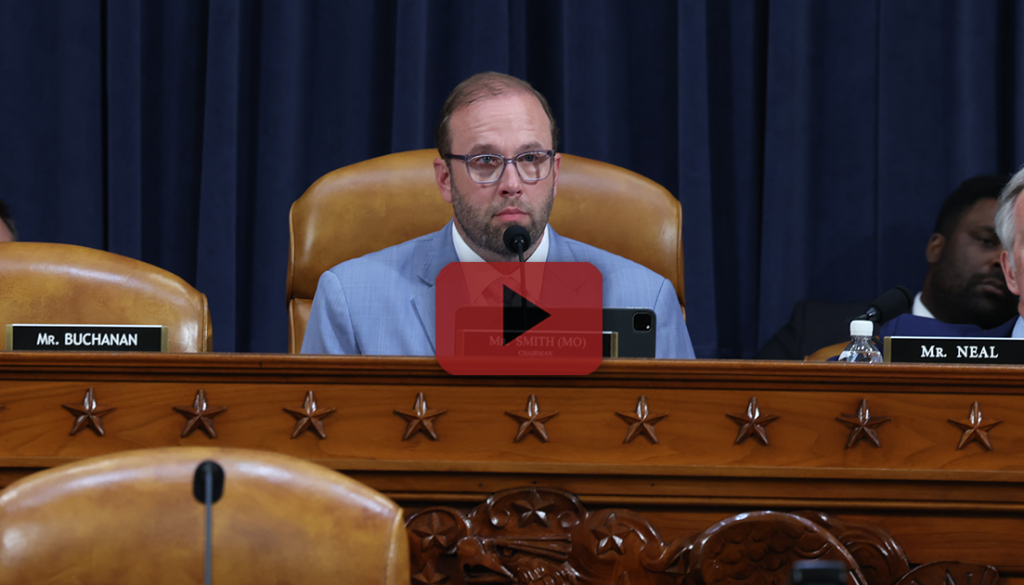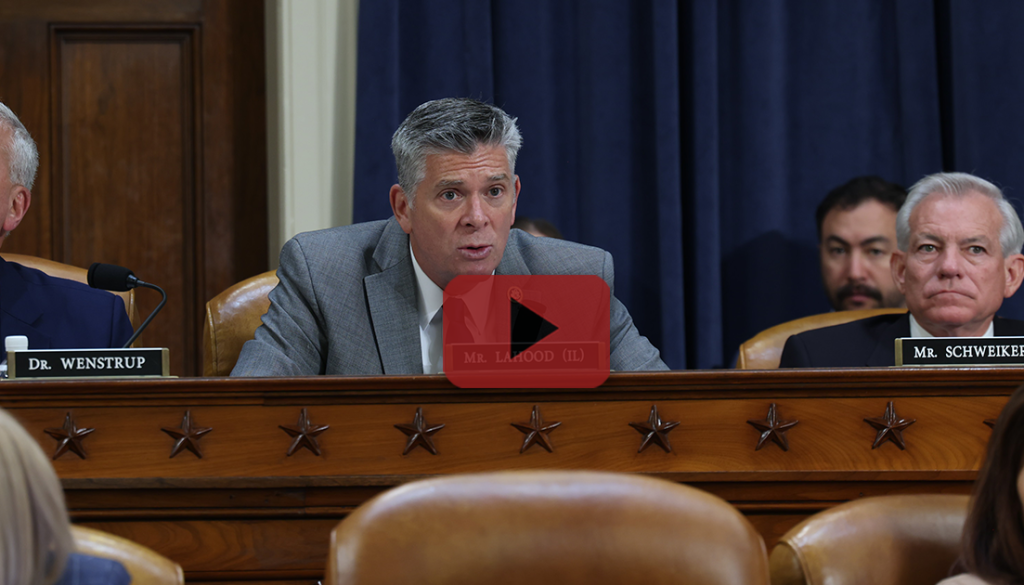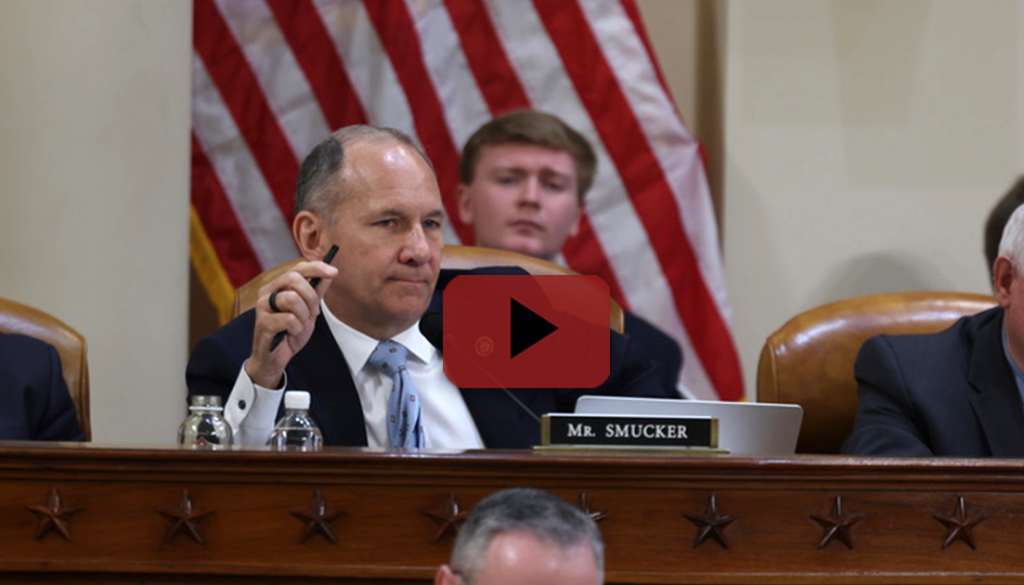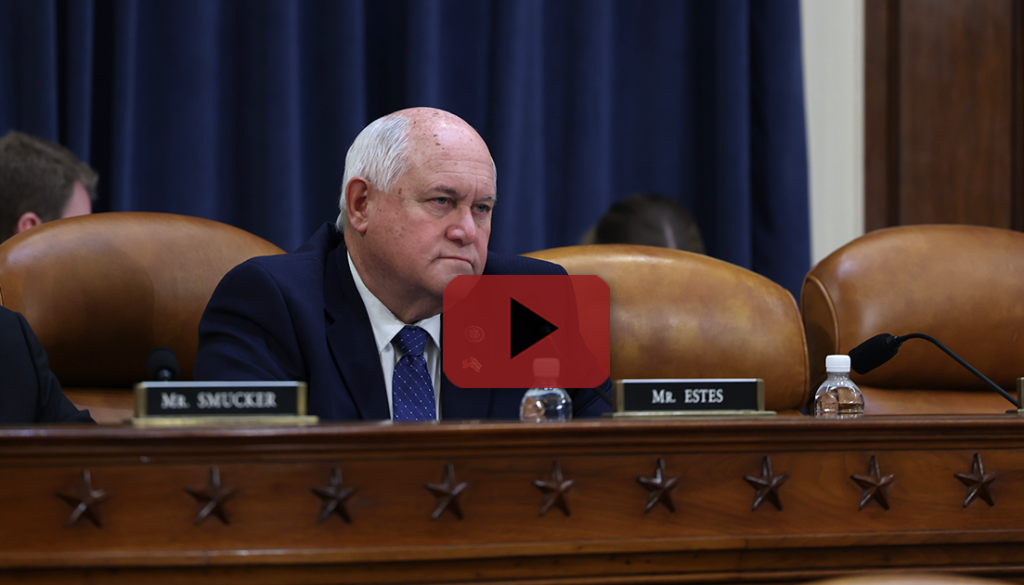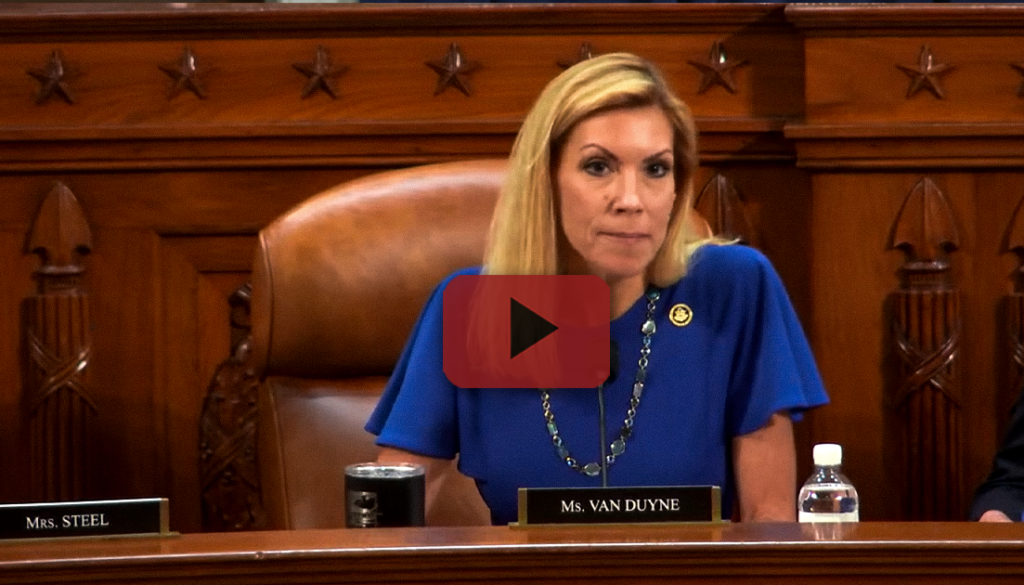Paris Hilton: “I strongly advocate for the reauthorization of Title IV-B. Families need resources and support so they don’t come into the child welfare system in the first place.”
WASHINGTON, D.C. – At a Ways and Means hearing on strengthening child welfare programs in Title IV-B of the Social Security Act, witnesses urged the Committee to pursue reforms that would help the program better serve children and families in crisis. The hearing comes as the Committee has conducted a year-long review of Title IV-B to examine how it can better meet current needs and challenges. Witnesses, including former foster youth, lived experience advocates, and child welfare experts, identified areas ripe for reform, including kinship care, the caseworker shortage, administrative burden, and unfair barriers faced by Native American tribes.
At the hearing, Paris Hilton shared her story of experiencing physical and psychological abuse at a congregate care treatment facility while a teenager and called on Congress to deliver on important reforms to the child welfare and foster youth programs. Since her experience, Ms. Hilton has used her national platform to advocate for change.
Paris Hilton Calls for Congress To Reauthorize Title IV-B
For the past year, the Ways and Means Committee has conducted a review of ways Title IV-B can be strengthened to unify families and protect vulnerable children with an eye toward reauthorization and reform of the program. Ways and Means Committee Chairman Jason Smith (MO-08) asked Paris Hilton what steps the Committee should take to reform child welfare. She urged Congress to reauthorize Title IV-B, improve community-based supports to keep families together, and tighter oversight of youth residential treatment facilities.
Chairman Smith: “As you know, the Committee is currently working on reauthorizing child welfare programs, looking at how we can ensure additional resources are available to foster youth and children in need — with a focus on keeping them in their homes and united with their families. Based on your experience, is that a priority you believe we should be focused on and what reforms do you think we should be considering to achieve these goals?”
Paris Hilton, child welfare advocate: “These youth don’t have a voice and anyone checking in on them, on their wellbeing. Locking kids in facilities is harmful and from my own experience has caused me severe post-traumatic stress disorder and trauma that I’ll have for the rest of my life. We need to reauthorize Title IV-B and invest in kinship care placement with a relative, as youth should be with family or adults who know and love them. I would also like to see the Stop Institutional Child Abuse Act passed as we need more transparency of what is happening in treatment facilities serving foster youth. The cost of treatment is five times more in a facility than community-based services. It is a completely ineffective use of funds and it hurts the kids and costs the taxpayers more.”
Paris Hilton: I Experienced Abuse In Congregate Care Treatment Facilities
As a teenager, Paris Hilton was forced to endure abuse when placed in youth residential treatment congregate care facilities. As she shared with the Ways and Means Committee, the abuse was severe and took a range of forms that profoundly impacted her adulthood. What happened to her should never happen to any child. The broader problem, as Ms. Hilton shared is that there are many more children who have suffered the same abuse and neglect in the child welfare system.
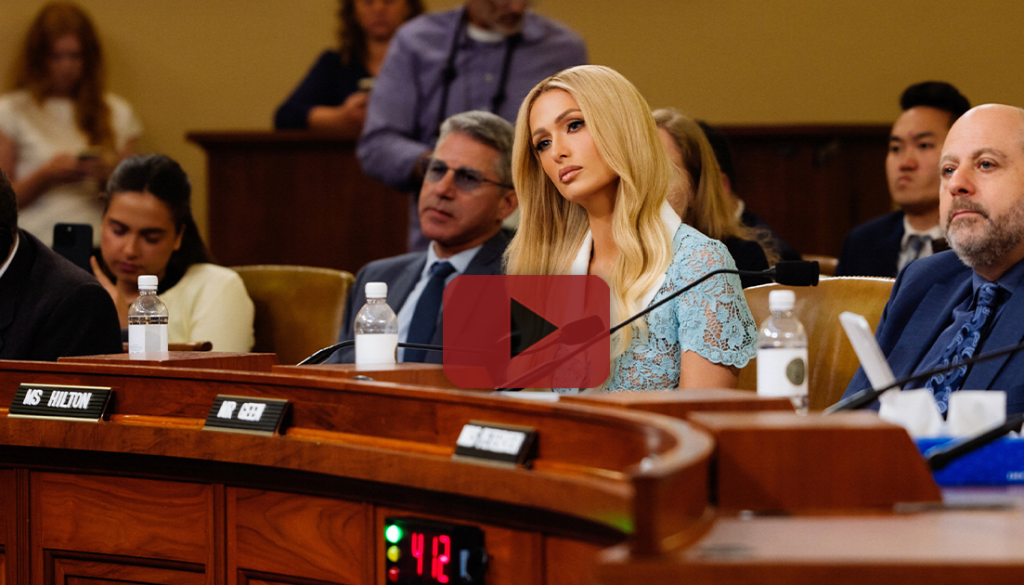
Paris Hilton, child welfare advocate: “When I was 16 years old, I was ripped from my bed in the middle of the night and transported across state lines to the first of four youth residential treatment facilities. These programs promised healing, growth and support, but instead did not allow me to speak, move freely, or even look out a window, for two years. I was force-fed medications and sexually abused by the staff. I was violently restrained and dragged down hallways, stripped naked, and thrown into solitary confinement. My parents were completely deceived, lied to, and manipulated by this for-profit industry, about the inhumane treatment I was experiencing. So – can you only imagine the experience for youth who are placed by the state and don’t have people regularly checking in on them? I attended facilities with foster and adopted youth. And I heard their testimony that they feel like they were forgotten.”
“When Helping Hurts”: Striking the Right Balance Between Resources and the Dignity of Work
Welfare programs should be a temporary bridge for Americans living in crisis to obtain work and live a productive, healthy, and safe life. Title IV-B provides resources to help children and families in crisis with the goal of keeping families intact. As Tori Hope Petersen, a lived experience advocate and current foster parent, shared with Work & Welfare Subcommittee Chairman Darin LaHood (IL-16), financial supports for are no substitute for personal relationships and the important role mentors, churches, and community organizations play in working to build meaningful connections and relationships with foster youth.
Rep. LaHood: “One of the policies I have focused on as Chairman of the Subcommittee on Work and Welfare is embracing the stories of those who experienced transformative change from the power that employment brought to their lives. Our focus has been not just about a job, but the dignity of work. In your opinion, how can we remove barriers to employment for foster youth?”
Tori Hope Petersen, former foster youth and kinship care provider: “My husband and I see this pattern in young people again and again and again. The point is not that we shouldn’t help, but that there is a point when helping hurts and it’s our responsibility as the helper to figure out where that point is. When resources are excessive, they can become enabling to young adults and communities because communities are then given permission to not invest their time and energy and love into these youths.”
D.C. Regulations Prioritize Pointless Paperwork Over Helping Children
During several Committee hearings on child welfare, it was explained that state welfare agencies and caseworkers spend precious time and resources filling out government paperwork rather than spending quality time with at-risk families. Unfortunately, this extra administrative burden fails to deliver meaningful accountability and oversight of state welfare agencies and takes important time and resources away from assisting families. Recent legislation introduced by Rep. Lloyd Smucker (PA-11)will help reduce the federal administrative burden in service of providing more hands-on casework.
Rep. Smucker: “Certainly we want accountability for child welfare agencies in our communities and states, but I’ve also heard the paperwork, the federal reporting requirements are burdensome; they’re tedious. I’ve introduced another bill, which would call for an evaluation of the requirements and reporting for Title IV-B dollars, with a goal of reducing that burden by at least 15 percent…Do you agree that that’s an issue? If we were successful in reducing paperwork by that amount, how could they use that time to better support the individuals in our communities?”
Rob Geen, child welfare expert: “The administrative burden you talk about is a theme that we heard a lot during our landscape assessment. That burden not only affects workers’ ability to spend time with families; it affects their morale and the likelihood of them turning over. The biggest complaint we heard about the administrative burden is that it’s largely unrelated to accountability. So much of what we collect are process measures that feel like checking boxes rather than truly holding agencies accountable for outcomes. There certainly seems like there is an opportunity to both reduce administrative burden and focus on accountability more, recognizing that our data systems right now don’t do a good job of always tracking the outcomes that youth experience.”
“Uphill Battle”: Kinship Care Providers Don’t Get Same Treatment to Provide for Children
Family members, like grandparents, often step in to take care of children when their living situation with their biological parents is disrupted. For many families, this is a better alternative to living in foster care and potentially moving between multiple families. However, kinship care providers often do not get the same resources as foster parents as one Ohio kinship care provider shared with Rep. Ron Estes (KS-04).
Rep. Estes: “When a child is no longer able to be in the care of his or her parents, every effort should be made to keep the child within the family, assuming those relatives are well disposed to care for the children. Ms. Peterson, I know you have direct experience with foster care children. You’ve covered a lot of things today, as well as dealing with a kinship care process. Can you describe the challenges you faced in going through the kinship care process?”
Tori Hope Petersen, lived experience and kinship care provider: “Just being ignored, not having access to resources, not being made a priority because they knew my sister was safe. It definitely has been an uphill battle to advocate for our family, but more importantly to advocate for her. I do think that kinship families are often looked at as a lower priority than foster parents and adoptive parents and that can be really challenging.”
Foster Youth Face Frightening Statistics
In response to a question from Rep. Beth Van Duyne (TX-24), Paris Hilton shared the tragic reality facing many foster children after aging out of the program: higher rates of homelessness, trauma, and suicide. Consequently, foster children need more support to help avoid those life outcomes, both while in foster care and as they graduate out of the system and into adulthood.
Rep. Van Duyne: “The further mistreatment and lack of proper care for these [foster] kids is inexcusable. Ms. Hilton, from your experience, what are the outcomes for youth placed in these kinds of facilities?”
Paris Hilton, child welfare advocate: “It’s so concerning what the foster youth have experienced. The outcomes for these youth are horrible. Children are being abused and dying in these kinds of facilities, and just surviving is the best-case scenario. I feel grateful where I am in life after my experience, but most don’t end up having access to education. They end up homeless, having trauma, and a high percentage commit suicide because they don’t know how to deal with the experience. The government is paying for this abuse and we must stop it.”

